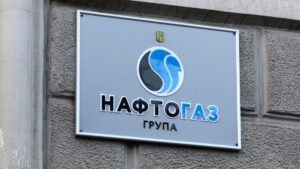
Naftogaz Group will use a EUR 270 million loan from the European Bank for Reconstruction and Development (EBRD) and a EUR 140 million grant from the Norwegian government through the NORAD fund to purchase 1 billion cubic meters of gas as a matter of urgency.
“The funds received are extremely important for Naftogaz. They will allow us to purchase almost 1 billion cubic meters of gas, which is critical for the stable passage of the next heating season, especially in the context of war and regular attacks on our energy infrastructure. I am grateful to all the partners who help Naftogaz prepare for the next winter,” commented Roman Chumak, CEO of Naftogaz Group, in a statement on the company’s website on Monday.
Chumak emphasized that the financing is already available and expressed his gratitude to the EBRD, the Ministry of Finance of Ukraine, the Ministry of Foreign Affairs of Norway and the NORAD Foundation, as well as the Naftogaz team for the successful cooperation that helped to attract financing for gas purchases.
As noted, cooperation with international financial institutions is part of Naftogaz’s long-term strategy to diversify its supply sources and ensure Ukraine’s energy stability.
Earlier it was reported that on April 25, the EBRD confirmed the provision of a EUR 270 million loan to Naftogaz of Ukraine to create strategic gas reserves, Norway supplemented the loan provided under the state guarantee with a grant of EUR 139 million, which will come through the EBRD Special Crisis Response Fund.
“Naftogaz has previously received two EBRD loans totaling EUR 500 million, which were accompanied by guarantees from the United States, Norway, Germany, France, Canada and the Netherlands totaling EUR 275 million, as well as grant funding of EUR 187 million from Norway for emergency purchases of natural gas.
At the end of March, Dmytro Abramovich, a member of the Board and Commercial Director of Naftogaz Group, said that Ukraine needs to import 4.5-4.6 billion cubic meters of natural gas by November 1 this year.

The National Bank of Ukraine (NBU) forecasts that gas imports will rise to $2.9 billion in 2025 due to Russia’s destruction of gas infrastructure, which will be partially financed by international partners.
“In the forecast period, production will gradually recover, but it will be insufficient to fully cover the domestic needs of the economy, including industry, housing and communal services, and households,” the National Bank said in its Inflation Report for April 2025.
The regulator expects gas procurement needs to gradually decline in 2026 to about $1.1 billion and fall to $0.4 billion in 2027.
“The continuing electricity deficit and losses in the gas production industry will hamper GDP recovery over the forecast horizon and increase the dependence of the energy and industrial sectors of the economy on imports, which will generate corresponding price risks that may be passed on to consumer prices,” the NBU added.
It is noted that significant risks of further destruction of energy infrastructure remain, and their realization could further dampen GDP growth and increase inflationary pressures. At the same time, the possibility of a faster recovery of the electricity or gas infrastructure or the introduction of new capacities remains a positive factor for the forecast.
As reported, during three years of full-scale invasion, Russia has carried out more than 30 massive complex attacks on Ukrainian energy infrastructure facilities, causing billions of dollars in damage.
According to the former head of the Ukrainian Gas Transmission System Operator (OGTSU), Serhiy Makogon, given the volume of its own production, Ukraine will need to import 5.5-6.3 billion cubic meters of gas by the start of the heating season on November 1, 2025, which will require approximately $2.5-3 billion. According to his estimates, by the start of the next heating season, it is necessary to have at least 9 billion cubic meters of reserves (excluding buffer gas) in underground gas storage facilities, as this year’s experience has shown that starting the season with lower reserves is extremely risky, since by the end of the season reserves fell to approximately 0.68 billion cubic meters.
In turn, Dmitry Abramovich, a member of the board and commercial director of the Naftogaz group, said at the end of March that Ukraine needs to import 4.5-4.6 billion cubic meters of natural gas by November 1 this year.
Since the beginning of this year, Naftogaz has contracted 1.5 billion cubic meters of gas: 800 million cubic meters were urgently imported at the beginning of the year, 400 million cubic meters will arrive in the country in preparation for next winter, and another 300 million cubic meters of LNG were purchased by Naftogaz from Poland’s ORLEN. The company is also negotiating with the government and international financial institutions to attract EUR 1 billion in financing to purchase more than 2 billion cubic meters of gas.
According to Makogon, guaranteed gas import capacity is approximately 50 million cubic meters per day, so it will take three months to import 4.6 billion cubic meters of gas and four months to import 5.6-6.3 billion cubic meters, assuming 100% capacity utilization, which is commercially difficult to achieve.
Thus, he believes that in order to import the necessary volumes by November 1, it is necessary to start importing significant volumes of gas as early as May.
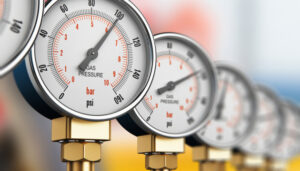
Naftogaz Group has contracted 1.5 billion cubic meters of gas since the beginning of the year: 800 million cubic meters were urgently imported at the beginning of the year, 400 million cubic meters will be delivered to Ukraine in preparation for the next winter, and another 300 million cubic meters of LNG were purchased by Naftogaz from Polish ORLEN.
“During the first quarter, Naftogaz managed to attract about EUR 430 million from the European Bank for Reconstruction and Development (EBRD) and the Government of the Kingdom of Norway, which will soon be used to purchase 1 billion cubic meters of imported natural gas,” said Roman Chumak, acting Chairman of the Board of Naftogaz of Ukraine. Roman Chumak, quoted by the group’s press service in a message on the Telegram channel.
According to him, the company is also negotiating with the government and international financial institutions to raise funding in the amount of EUR 1 billion to purchase more than 2 billion cubic meters of gas.
As reported with reference to the former head of the Ukrainian Gas Transmission System Operator (GTSOU), Serhiy Makohon, Ukraine, given its own production volumes, needs to import 5.5-6.3 bcm of gas by the start of the heating season on November 1, 2025, which will require approximately $2.5-3 billion. According to his estimates, by the beginning of the next heating season, it is necessary to have at least 9 bcm of reserves in the UGS facilities (without buffer gas), as this year’s experience has shown that starting the season with lower reserves is extremely risky.
In his turn, Dmytro Abramovich, a member of the Board and Commercial Director of Naftogaz Group, said in late March that Ukraine needs to import 4.5-4.6 billion cubic meters of natural gas by November 1 this year.
According to Makohon, the guaranteed capacity for gas imports is approximately 50 million cubic meters per day, so it will take three months to import 4.6 billion cubic meters of gas, and 5.6-6.3 billion cubic meters in 4 months, and this is at 100% utilization, which is commercially difficult to achieve.
Thus, he believes that in order to import the necessary volumes by November 1, it is necessary to start importing significant volumes of gas in May.
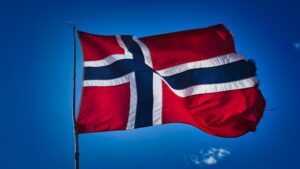
Norway is providing an additional NOK1 billion ($95 million) to finance gas imports to Ukraine to ensure adequate supplies for households, businesses and industry in the country, the Norwegian government said on Wednesday.
“A more secure energy supply is essential for Ukraine’s resilience. This was one of the topics discussed during President Zelensky’s visit to Norway last week. There is an urgent need to increase funding for gas imports to provide electricity and heating for homes, businesses and public institutions. Norway is doing its part to meet this need,” said Prime Minister Jonas Gahr Støre.
The new financing will be channelled through the European Bank for Reconstruction and Development (EBRD) and will be used to purchase gas from Western sources. The recipient of the gas will be the Ukrainian state-owned company Naftogaz. The imported gas will be used to meet consumption needs and increase gas reserves in case of further attacks on gas infrastructure. The financing is provided under the Nansen Support Program for Ukraine, and NOK1 billion is taken from the 2025 energy sector allocation for Ukraine.
“Access to electricity is essential to ensure the security of the Ukrainian people and to ensure the continued functioning of society. The attacks on Ukraine’s energy supply are and have been an attack on the very core of Ukrainian society. They are part of an attempt to weaken the Ukrainian economy and undermine the confidence of the Ukrainian people in their government. That is why it is crucial and strategic to help preserve access to gas,” said Foreign Minister Espen Barth Eide, who is visiting Ukraine this week.
The additional allocation will bring Norway’s total contribution to Ukraine’s gas purchases from 2022 to NOK3.6 billion ($342 million). In 2023, NOK635 million was allocated for gas purchases. The funds have already been released and can be used to increase the total contribution. Thus, the total amount of the agreement is NOK1.635 billion ($155 million).
“We don’t know yet how much gas Ukraine will need to import this year, but Norway’s contribution will enable Ukraine to better cope with the consequences of new attacks from Russia and make the necessary preparations for next winter,” Eide said.
The EBRD has been cooperating with Naftogaz for several years, in particular on corporate governance. Channelling funds through the EBRD helps to reduce risks, such as the risk of corruption and financial irregularities, the statement said.
As reported, Ukrainian Prime Minister Denys Shmyhal on Wednesday discussed joint humanitarian programs and sanctions against Russia with Norwegian Foreign Minister Espen Barth Eide and Norwegian Minister of Labor and Social Inclusion Tonje Brenna. The prime minister also thanked Norway for its assistance in the energy sector, in particular for its readiness to make a EUR140 million contribution through the EBRD for the purchase of gas for Ukrainian gas storage facilities.
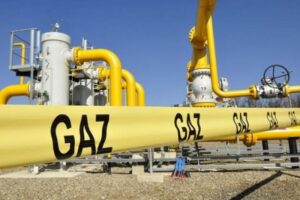
Ukraine needs to import 4.5-4.6 billion cubic meters of natural gas by November 1 of this year before the start of the next heating season.
This was announced by Dmytro Abramovich, a member of the Board and Commercial Director of Naftogaz Group, at a meeting of the Verkhovna Rada Committee on Energy, Housing and Utilities on Wednesday.
“Naftogaz is already contracting for April, May and the following months, we are not stopping, realizing that by November 1 of this year, if we want to reach the balance sheet indicators comparable to last year, we need 4.5-4.6 billion cubic meters of gas,” he said.
According to the commercial director, Naftogaz has already imported almost 800 million cubic meters of gas in February-March this year.
“This is a technological import, because it cannot be said to be for final consumption – another resource is commercially consumed – but this resource was necessary for balancing the system and daily withdrawal,” Abramovich explained.
According to the company, Ukrainian consumers consumed 14.86 billion cubic meters during the heating period in November-March 2024-25, while the balance plan of the Ministry of Energy of Ukraine was 14.73 billion cubic meters. At the same time, the level of consumption was 680 million cubic meters or 5% higher than in the same period in 2023-24.
According to the commercial director, during the last heating season, Ukraine also lost 700 million cubic meters of its own gas production as a result of Russian shelling.
“We lost almost 700 million cubic meters of gas during the heating season for obvious reasons. Until February 1, we were doing better than planned according to the country’s balance sheet, but the shelling happened and we lost a very large part of production,” he said.
According to Abramovich, Ukraine is also planning to reach 500 million cubic meters less gas reserves in underground gas storage facilities (UGS) during the current heating season than planned in the balance sheet.
At the same time, gas consumption in 2025 in the country will be comparable to last year and will amount to 20.6-20.8 billion cubic meters.
“We see this in the trend, in the current consumption dynamics, so the main task is to work on energy saving and on the restoration of production and continue imports,” summarized the commercial director.
As reported with reference to Prime Minister Denys Shmyhal, the European Bank for Reconstruction and Development (EBRD) on Wednesday approved a loan for Naftogaz of Ukraine for the purchase of natural gas for the next two heating seasons in the amount of up to EUR270 million. Additionally, about EUR140 million in grants from the Norwegian government will be channelled through the EBRD.
According to Shmyhal, this resource will help Ukraine accumulate gas reserves in underground storage facilities for the next heating season.
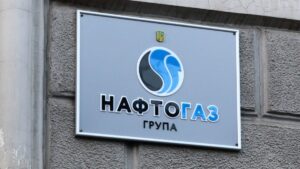
The Naftogaz Group and the European Bank for Reconstruction and Development (EBRD) have discussed financing the purchase of natural gas and supporting its production in the face of Russian attacks.
As the group reported on Friday, these issues were the focus of a meeting between Naftogaz CEO Roman Chumak and EBRD President Audrey Renaud-Basso. The event was also attended by EBRD Vice President Matteo Patrone, Managing Director for Ukraine and Moldova Arvid Turkner, and Deputy Head of the EBRD in Ukraine Iryna Kravchenko.
“Strengthening the country’s energy resilience in the face of a full-scale war, ensuring a stable heating season and providing all categories of consumers with gas are our key objectives. We are grateful to the EBRD for its support and continue to work together on financial instruments to ensure Ukraine’s energy security,” Chumak emphasized during the meeting.
He also added that in today’s environment, flexible and operational solutions in cooperation with international partners allow Naftogaz to respond quickly to crisis situations and ensure uninterrupted energy supplies.
As reported with reference to the Minister of Energy of Ukraine Herman Halushchenko, Ukraine will need to import at least 1 billion cubic meters of natural gas by the end of 2025.
At the same time, according to former Energy Minister Olha Buslavets, the country will have to import 2-3 billion cubic meters of natural gas in 2025 to cover the shortage.
According to her estimates, Ukraine should go through the heating season without serious gas supply restrictions, unless there are extreme frosts, but by the end of it, reserves in underground gas storage facilities (UGS) will amount to about 4.5-5 billion cubic meters, which means an additional need to import 2-3 billion cubic meters of gas by the end of this year.